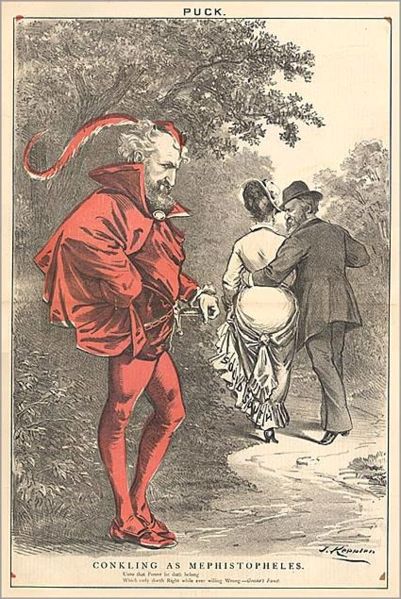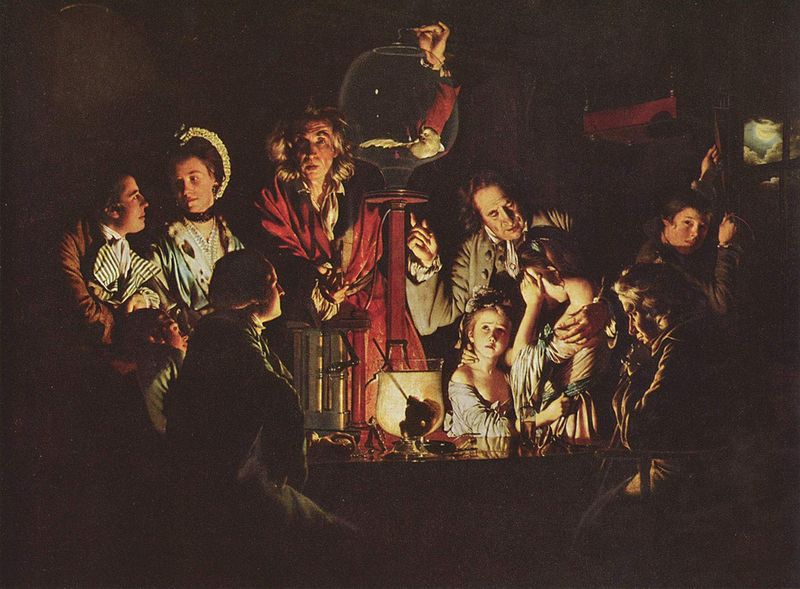You read that correctly. Israel traded over 1000 Palestinian prisoners, many of whom had tried to kill Israeli citizens, for one of their guys, and Gilad was not even a big-shot general. He was just a corporal in the Israel Defense Force’s Armor Corps.
Initially, I thought it was the most insane strategic decision ever made. Why give the enemy more foot soldiers when they have sworn to annihilate your nation? Wasn’t that tantamount to rewarding terrorist tactics, and wouldn’t that merely encourage Hamas to be more belligerent in the future?
My faith instructs me to be charitable even to my enemies—something at which I do not excel, but I do try—and yet I could not have made the Gilad Shalit decision. I want to believe in the best in people, I want to believe that people will do the right thing on their own, but experience has taught me that vigilance is sometimes wise.
If everyone did what they should, there would be no need for the police or for the army, and throughout recorded history, no civilization has thrived for long without either. And yet, I cannot help but marvel at the courage needed to strike such a deal.
Sure, Israel’s decision was a risky one, but maybe it isn’t as foolish as I first thought. After all, is it not a testament to Israel’s value for human life? What fair-minded observer could witness such an action and still accuse Israel of being the aggressor, of being a mere nation of genocidal maniacs?
I wonder too if any of the 1000-plus prisoners will rethink their hatred of Israel after being released. If Israel really were the Little Satan as some Arabs call it, would the country really agree to such a trade?
There is something different about the nation of Israel. That much is clear, but how is it different and why? This six-minute video is a good place to start:
http://www.youtube.com/watch?v=CdQMbH72Mg4&list=UU0RT9NNS7b7ffbb1_stkolQ&index=20&feature=plcp
Israel is a controversial topic, ladies and gentlemen, so allow me to explain why I chose it before proceeding. This wasn’t something I was dying to write, I can assure you. Be that as it may, I could not avoid the topic.
When I did my write-up on graphic-novel icon Will Eisner I was surprised by the recurring Jewish themes in his work. That’s not territory comics tend to tread. Around the same time, I was also reading Corrie Ten Boom’s The Hiding Place and Art Spiegelman’s Maus, both of which elucidate Nazi horrors inflicted upon the Jews. I didn’t plan for that. It just sort of happened that way.
In the back of my mind too was President Obama’s dismissive comment about Israeli Prime Minister Benjamin Netanyahu. Then there was Glenn Beck’s Restoring Courage rally in Israel.
Concerned about how the Jews are being treated throughout the world, Glenn organized a rally in Jerusalem to show support and to encourage others to courageously defend what is right. There are easier ways to get attention than by bringing thousands of people to an unstable region, and to his credit Glenn Beck didn’t once veer into political attacks.
Besides, Jon Voight attended, and he’s a celebrity, so that has to count for something, right?
Say what you will about Glenn Beck, but he risks quite a bit to defend what he believes, and that earns my respect. (What have you risked to defend what you believe?) Here is part of his Restoring Courage speech:
http://www.youtube.com/watch?v=dI–uBkOS9o&feature=youtu.be&t=1m53s
All of those references to Israel simmered in my heart and then came to a boil, until I could not ignore them. I felt like I had to write this, so that’s the context. Now back to the country.
While struggling to survive in the brutal wilderness, the Israelites declared that there is one God and that He is good and cares how we treated each other. This was something new. In contrast, the Egyptians and the Greeks worshipped warring, sometimes amoral, gods who had dominion over different realms like earth, wind, and fire.
The enemies of Israel argued theology with their swords and chariots. Under enormous pressure, the Israelites sometimes faltered and fought amongst themselves, and yet they kept believing. Through their persistence they shaped how the rest of us see the world. The faith of the Jews, along with the logic of the Greeks, would become the very foundation of Western Civilization.
Jerusalem, Dome of the Rock. Photo credit: AntonioA
Yet, history has not always been kind to the Jews. They’ve been conquered, sent into captivity, exiled from their homeland, excluded from elite society, and relegated to ghettos and concentration camps. In 1948, the Jews were finally given nation status and allowed to return to their ancestral land, but ever since they’ve faced almost incessant attacks from their Arab neighbors. Could people of such sorrows truly be God’s chosen ones?
It is more comfortable to say no, to discredit the divine purpose of the Jewish people. That way suffering doesn’t have to be a central part of the equation, but somehow that doesn’t ring true.
I’ll elaborate on that by quoting Victor Laszlo in Casablanca: “Do you know how you sound, Mr. Blaine? Like a man who’s trying to convince himself of something he doesn’t believe in his heart. Each of us has a destiny – for good or for evil.”
When Humphrey Bogart’s Rick tells Laszlo that he gets the point, Laszlo responds by saying, “I wonder if you do. I wonder if you know that you’re trying to escape from yourself, and that you’ll never succeed.”
Each of us really does have a destiny, for good or for evil. I really believe that. The Israelites sought to collectively pursue their divine destiny, and that made those who didn’t do as much feel uncomfortable, even angry. If that sounds odd, just think about all the people who would rather hate others for being successful than fight for their own success.
Evil hates it when others seek their sacred paths. It will do anything to prevent that from happening. Anything.
I’m hesitant to talk about evil, because it is rarely done right, but I am more convinced of evil’s existence than I’ve ever been in my life. I’ve felt physically uncomfortable after making certain recent decisions, as if something malevolent was pushing against my chest. I felt that way even when writing this post.
In fact, I came very close to deleting it and wasting the day away on frivolous or unhealthy pursuits. What can I say, it’s been a tough couple of weeks, and being alone on Christmas Eve brings up all kinds of emotions. It helped that the New York Giants won their game. The day might have gone otherwise had they lost, who knows.
Anyway, I believe the resistance I face when I’m seeking a destiny for good is but a small glimmer of what happens when nations do as much, and it’s not a pretty picture when evil prevails. That’s why we need to help those who are trying to fight the good fight. Goodness really is a team sport.
Hanukkah menorah. Photo credit: skpy
The paths of destiny is a tricky topic to broach. Philosophers have written piles of books on the subject, and if you think my ideas are kind of out there, well then, to use a double negative in a provocative way, you ain’t seen nothing yet. If you’re interested in the concept though, check out Stephen King’s Dark Tower series. King explains it better, but then he does have books worth of time to get the details right.
Speaking of King, let me quote a different one. Jan. 15 is Martin Luther King Jr.’s birthday, which is just a few days away, so that’s as good of a reason to quote him here. (Well that, and he went to Boston University, where I studied film. Plus, you know, he’s Martin Luther King Jr.) With that said, I quote: “In the End, we will remember not the words of our enemies, but the silence of our friends.”
For me, the hardest part of these past few weeks has been knowing that decent people I respect have known the truth about something and have remained silent, watching from a distance as I falter. It’s as if they think I’m doing it all to put on a good show, but the situation at hand will affect my life, and maybe those of others, in a significant way. I sense that I can’t make things work on my own; I need help, but I’m not sure I’ll get it. Still I have to try. Whatever happens, at least I’ll know I did the best I could.
How much more true that is for Israel right now. They are surrounded by hostile countries, some of whose leaders have sworn to wipe Israel off the map. It is no coincidence that these same leaders are aggressively pursuing nuclear weapons. Since that is the case, Mr. President, would you please listen more attentively when Prime Minister Netanyahu contacts you in the future? We are, after all, supposed allies of Israel.
Let’s go back to Stephen King’s Dark Tower series for a moment. In it, the destiny for good takes the form of a mystical Rose that sends ripples of love throughout the universe, trying to undo all the wrongs that have ever been done. Interestingly enough, an artist in Israel had a similar idea.
Yaron Bob lives in Israel, near the Gaza strip. He takes the metal scraps from exploded Hamas rockets and forges them into roses. It’s his way of trying to bring something good out of a tragedy. The roses are sold or given to dignitaries, spreading their message of hope in the process. Learn more by visiting rocketsintoroses.com.
Let me close with one more rose reference. “The wilderness and the solitary place shall be glad for them; and the desert shall rejoice, and blossom as the rose.” Isaiah 35:1. Some Christian theologians interpret that verse as a foretelling of Christ.
Christ Jesus was, like the nation of Israel, exiled from his home, ostracized by the elites, and made to suffer for pursuing his divine purpose. He did it so that all the sad things might someday be undone. Someday.
http://www.youtube.com/watch?v=BWW0MlnZCYY&feature=BFa&list=UU0RT9NNS7b7ffbb1_stkolQ&lf=plcp
Happy Hanukkah and Merry Christmas ladies and gentlemen.
If you appreciate my writing, why not write a comment or share the post with a friend? It would encourage me to keep writing and sharing some of my heart with you.
I could not write these kinds of posts if I published on weekly basis. They take a little longer to produce. That’s why I encourage you to sign up by email. You can do that by clicking here.
If you’re following along by email, you’ll know right away when I have a new post waiting for you. It is very easy to unsubscribe, and you won’t receive anything unrelated to my blog.




